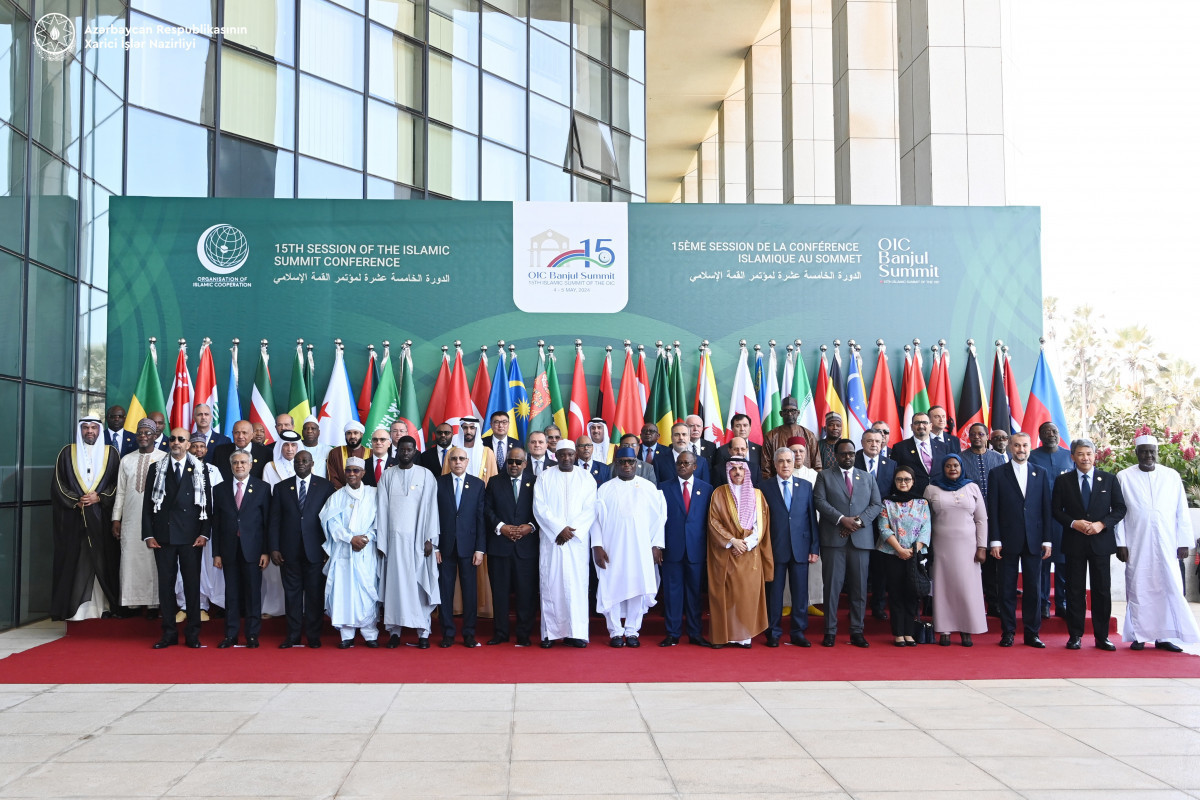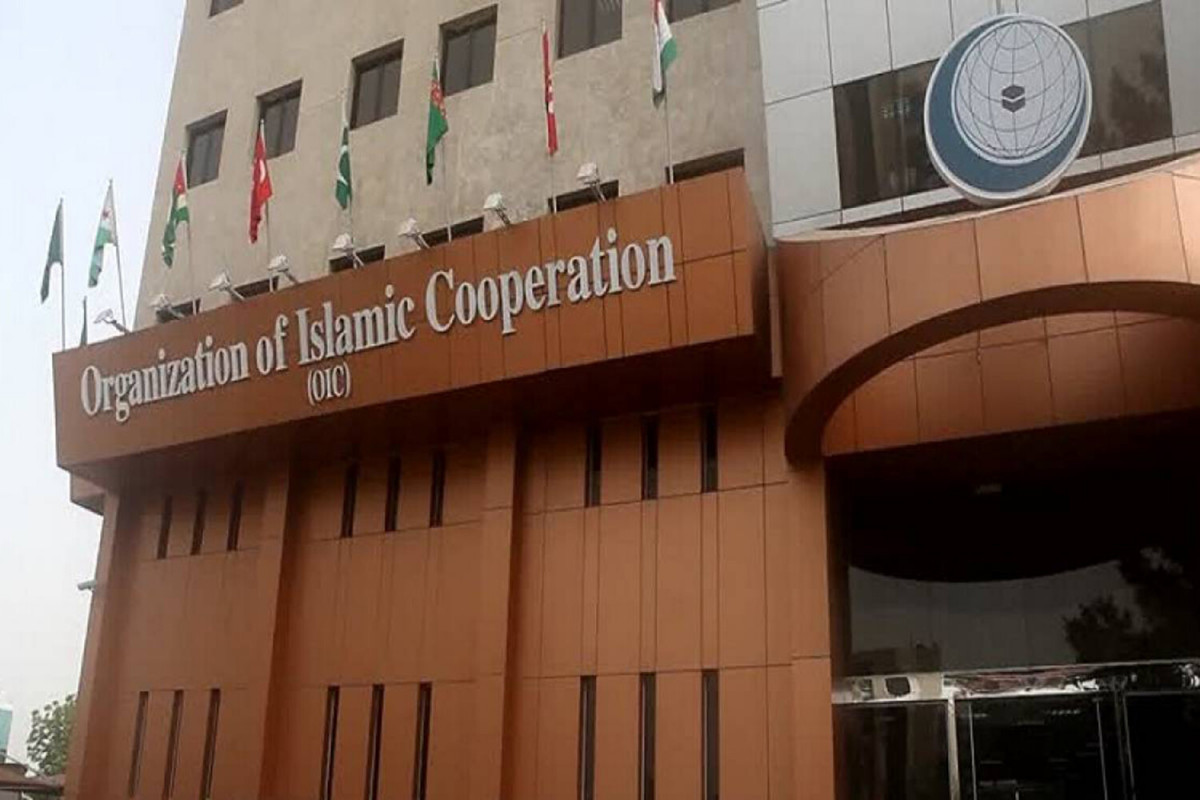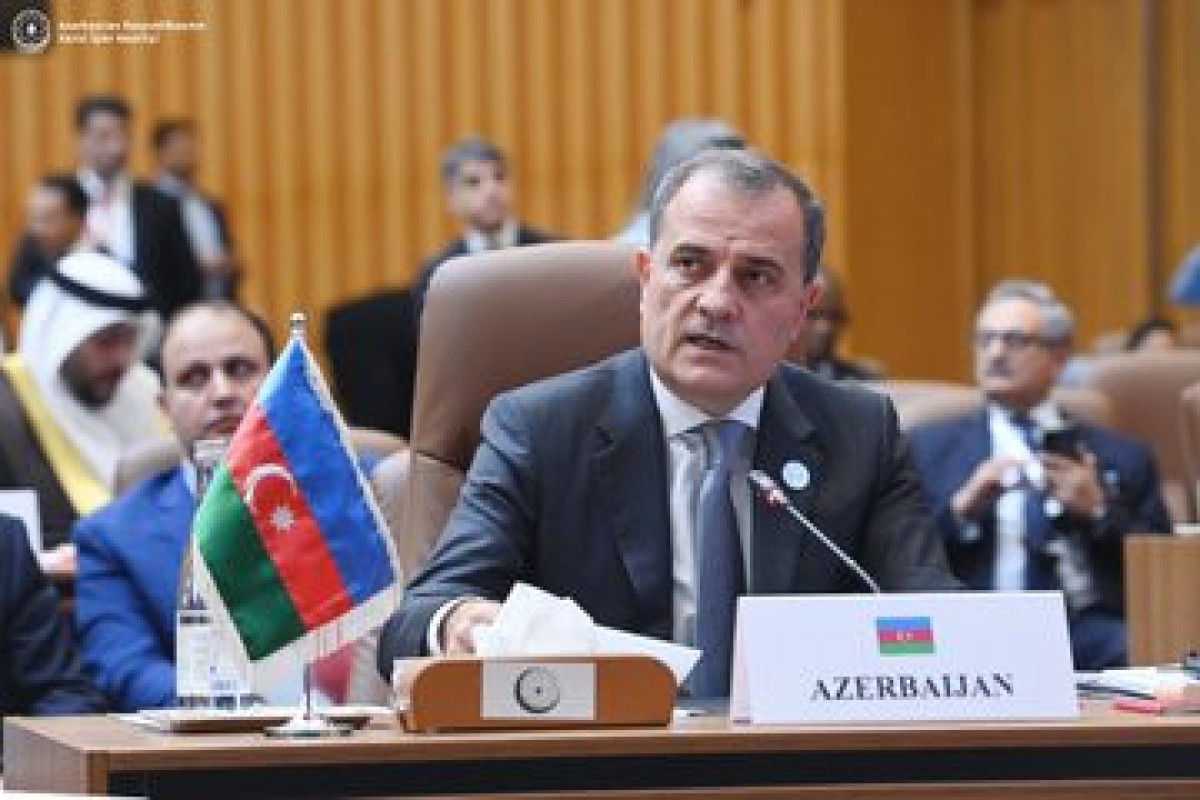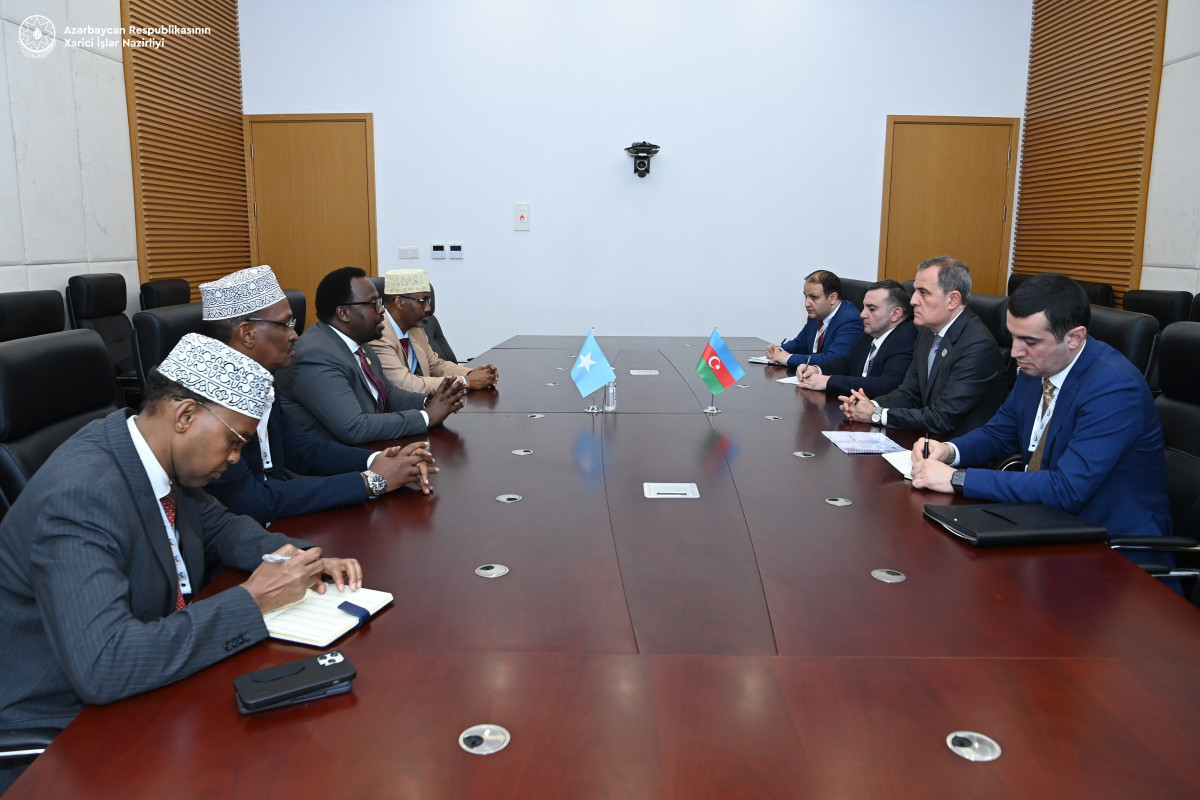Q: How do you feel about the current state of diplomatic relations between Azerbaijan and the United Kingdom?
A: Relations between Azerbaijan and the United Kingdom have a historic significance and are of the strategic partnership nature. This year, we are celebrating the 100th anniversary of the Azerbaijan Democratic Republic (ADR). It would be fair to the special role of British presence in the region in the relative stability that prevailed in Azerbaijan during the ADR. Last year the two countries marked the 25 years of diplomatic relations. Our current relationships are multidimensional. Although our cooperation is stronger in the field of energy, it is pleasing to me that these relations are in the process of diversification and in recent years relations in other areas have also started to play a major role.
The President of the Republic of Azerbaijan has traditionally made his first foreign visit to Turkey following the inaugural ceremony. This time, however, Mr. Ilham Aliyev did not return to Azerbaijan, but once again visited London at the invitation of British Prime Minister Theresa May. This is a very good indicator of the level and dynamics of our relationship. That was a 6-7-hour trip. The Head of State had meetings with the Prime Minister of the United Kingdom, the Minister of State for Europe and the Americas, the Minister of State for Trade and Investment, representatives of the House of Lords and Commons of the British Parliament, BP leaders, and son of Queen Elizabeth II – Duke of York in the Buckingham Palace. The essence and nature of these meetings I think were proof of our strategic partnership going on the right course and at the necessary pace.
Q: What is the Embassy doing to raise awareness of Azerbaijan in the British community?
A: London is a playground of great politics. Today, I can say with certainty that Azerbaijan has successfully gained international recognition.
Today, nobody asks us where Azerbaijan is on the map. That was also the case in the Czech Republic, where I was the ambassador. In the last month alone, several world-famous filmmakers from the UK were in touch with the Embassy to make a film about Azerbaijan. There are also some volunteers who are willing to visit the region to join them, and I’m pleased that the main subject of these filming projects is not energy, but other areas such as transport, tourism, agriculture, culture, history, etc. It is my view that as our relations with the UK has gone through diversification, Azerbaijan is beginning to become a wider phenomenon for British society than just energy. Of course, as I said, there is no need to form a notion of Azerbaijan; Britons are well informed about Azerbaijan. We simply aim to diversify this notion and to let the British people become familiar with the less known sides of Azerbaijan.
The ambassador spoke about the events the Azerbaijani Embassy in the UK organized last month.
Performance “Land of Fire” with the participation of Azerbaijan’s native Karabakh horse was displayed at the 75th Royal Windsor Horse Show held in London on May 9-13. Queen Elizabeth II watched this performance repeatedly for several days. It is very interesting that the horse racing culture in the UK has historical roots. From the Queen to all strata of society, everyone cheers these races on. Therefore, I think that such cultural events are of a great importance in terms of introducing the country to the society. Later on, a grandiose concert of Azerbaijan’s tenor Yusif Eyvazov and Russian famous opera star Anna Netrebko was held in Royal Albert Hall on May 23. It is obvious that the reaction of spectators to such events is primarily measured by the intensity of applause. I’m very glad that the intensity of applause after the performance of Balash aria from the opera “Sevil” as well as Ave Maria by Farhad Badalbeyli was no less than after the performance of works by Verdi, Puccini and other foreign composers.
Moreover, 23 May 2018 was remembered with an important event in scientific, cultural and humanitarian fields between the UK and Azerbaijan. A historic contract was signed, under which, the Oxford Nizami Ganjavi Centre for the Study of Azerbaijan, the Caucasus and Central Asia will be permanently functioning at the University of Oxford as its integral part. One of the key items of the signed contract provides for the renaming of the Oriental Library at the University of Oxford to the Bodleian Nizami Ganjavi Oriental Studies Library. London is such a place where processes go systematically and in order to gain success, it is very important to show determination. Head of the Oxford Nizami Ganjavi Centre on behalf of Azerbaijan, Co-Chair of the Anglo-Azerbaijani Society on behalf of Azerbaijan, Rector of the Baku Branch of Lomonosov Moscow State University, Professor Nargiz Pashayeva, who devoted herself to this sphere, played an indispensable role in the signing of this contract. It should be noted that the Anglo-Azerbaijani Society has contributed and still contributes to the development of UK-Azerbaijan relations in cultural and humanitarian fields.
The 100th anniversary of the Azerbaijan Democratic Republic was solemnly celebrated in London on May 24. Minister of State for Europe and the Americas at the Foreign & Commonwealth Office of the UK, Alan Duncan, Regional President for Azerbaijan, Georgia, and Turkey of BP, Gordon Birrell and other influential people of British society attended the event.
Q: Is there a potential for increasing the trade turnover between the two countries? What areas of economic cooperation can be developed?
A: There is a great potential for increasing the trade turnover between the two countries. Cooperation in the agricultural field can be developed. Secondly, there are European standards in the UK. Another area in which cooperation can be developed is tourism. Interest in the tourism sector is gradually growing. Following BBC 2 TV Channel, Burning Productions has also asked the Embassy to create an opportunity for filming in Azerbaijan. They want to film Shamakhi, Shaki Khan Palace, “Kalayagi” (silk scarf) factory, Alban temple in Kish, Lahich copper plant, as well as in various parts of Baku, including Heydar Aliyev Center, Baku Boulevard and also to meet with various cultural figures. Moreover, international events such as Formula 1 Grand Prix, the 2012 Eurovision Song Contest, the first European Games, Baku Process and Baku Humanitarian Forum are of great importance not only for drawing Britain’s but also the whole world’s attention to Azerbaijan. And among our citizens, there has always been an interest in Britain. For example, British universities are among the first places where our students have chosen to study abroad.
Q: Are the two countries negotiating on direct flights to other cities other than Baku-London?
A: It is clear that the role of air transport in a country's promotion is undeniable. But, of course, while considering the opening of flights, the business side of the issue is also taken as an essential factor. When I was working in the Czech Republic, we were able to open direct Baku-Prague flights, but now these flights are carried out on a seasonal basis. From this point of view, currently directions among British cities other than London that promise sustainability have not yet been determined. On the other hand, as you know, our embassy is also accredited in Ireland, Iceland and Denmark. I believe the opening of the Baku-Copenhagen flights may be promising in terms of the history of the direction and our developing relationships. Also, as one who has traveled with Buta Airways, which was recently launched, I can say that such companies as Buta Airways can succeed in opening new flights.
Q: Is a Trade House of Azerbaijan is expected to open in UK?
A: This directly depends on the diversification of economic relations. It’s not only dependent on it, but also a cause of it. About 70-80 percent of our partnership concerns oil, gas and energy fields. For the future I see the opening of this house as a very promising direction. The first reason is that hydrocarbon reserves are here today and gone tomorrow. Although many deposits are currently being discovered, we all know that this is not an infinite process. Given the distant future, the opening of such a trade representative may be appropriate in terms of diversifying relations.
Q: What are the plans of the UK, in particular BP, in the near future in connection with Azerbaijan or the entire Caspian region?
A: The extension of the production sharing contract between BP and Azerbaijan for 25 years and a new agreement signed between BP and SOCAR during the Azerbaijani president’s visit to the UK reaffirm that BP attaches serious importance to relations with Azerbaijan. Both sides’ commitment plays an important role in the continuation of this partnership. For example, during the construction of pipelines, BP also supported the surrounding communities and implemented a number of social projects in this direction. In addition, BP’s commitment to the issue of local content in its activities and recruitment of more Azerbaijani personnel also speaks about the company’s desire to continue its activities in Azerbaijan in the future. Undoubtedly, Azerbaijan has repeatedly demonstrated its loyalty to this partnership in practice. Azerbaijan as partner was next to BP during the elimination of the consequences of the oil spill in the Gulf of Mexico in 2010.
Q: What is the UK’s position with regard to the Armenia-Azerbaijan Nagorno-Karabakh conflict? How interesting is the British government to resolve the conflict in the interests of Azerbaijan?
A: While emphasizing other aspects of Azerbaijan's foreign policy, we must remember that this foreign policy is based on national interests and is aimed at protecting national interests.
Armenia's aggression against Azerbaijan is still going on. As a result, over 20 percent of our country is under occupation. Britain's position regarding this issue has always been balanced because it is based on the principles of international law. The Azerbaijani side appreciates it. The UK is not a member of the OSCE Minsk Group, and this is what is preventing the country from playing an active role in resolving the conflict. But the importance of the Karabakh issue in Azerbaijan's foreign policy, our country’s future development and its role in international institutions in Europe, as well as the importance of UK-Azerbaijan relations in the British establishment are well understood. We see this in the positions the British side has voiced in all formats. For example, in December 2017, the governments of Azerbaijan and the UK concluded in the final protocol of the second session of the Joint Intergovernmental Commission on Economic Cooperation that bilateral relations were based on the fundamental norms and principles of international law, on the basis of mutual respect for sovereignty and territorial integrity.
Q: What would you say about activities of the Azerbaijani diaspora in the UK? What steps should be taken to further strengthen these activities?
A: There are three directions here. The first thing is to support the work of unofficial structures such as the House of Azerbaijan and the London Women's Club, which have been operating for decades. We can not get real results if we work from holiday to holiday. Therefore, it is essential that this work be systematic. The second direction is to work with active individuals, I mean our compatriots living here, especially non-diaspora members and students. We are trying to do our best in this direction. The third direction is to establish new active structures and to make sure their existence does not interfere with the existing ones. The Azerbaijani Women's Association in the UK is a good example of this. The activities of such organizations are beyond the traditional scope of the embassy and are quite promising.
Q: What is Azerbaijan's position on the poisoning of Sergei Skripal and his daughter Yulia Skripal?
A: Azerbaijan's position on this issue is clear. Azerbaijan has repeatedly suffered greatly from non-traditional weapons in the context of Armenia's ongoing aggression. For example, Armenia has been trying to use the over-dated and dangerous Metsamor Atomic Power Plant in regional relations as a means of pressure. Furthermore, I think the arsons committed by Armenians on the line of contact and the deliberate pollution of water and air are pressure on our country in an unconventional way.
As a member of the international community and a party to relevant conventions, Azerbaijan's position on the Skripal issue has been that from the very first day, we are against the use of chemical weapons regardless of location and time. The implementation of this process, confirming its sources and clarifying the details are in the portfolio of the Organization for the Prohibition of Chemical Weapons (OPCW). In such situations, Azerbaijan is not supportive of any bilateral or restrictive steps. As a member of the international community, decisions on such situations should be ideally universal and multilateral. From this point of view, Azerbaijan emphasizes the role of the OPCW and its Secretary General in this issue from the very first day. It seems to me that the steps taken by the organization on this issue were fairly transparent and constructive. After the OPCW report on the issue, Azerbaijan retains its position in line with that report.
Q: Azerbaijan and the UK remain committed to contributing to regional and global security. What can you say about this cooperation?
A: The UK and Europe are one of the key elements of global security. Azerbaijan also strives to play a role in ensuring security in both regional and Eurasian context.
I especially want to note that there are no conflicting issues in the political dialogue, as well as security and defense relations between the two countries. Our countries continue to contribute to international security bilaterally and within the framework of international organizations.
Currently, Britain's attention is certainly focused on Brexit problems. For the UK, the South Caucasus and the Caspian region are important, and it is important for Azerbaijan to play a central, pilot role in this region. The UK is interested in further strengthening and development of the Azerbaijani statehood. In our own plans we also take into consideration Britain’s role in ensuring European and international security. Our relationships are based on concrete principles. The major component of the security field is energy security. The role of Azerbaijan here is indispensable. The British emphasizes this in all negotiations. At all levels, our relationships are constructive and unproblematic. The main reasons for this are, of course, the overlapping of theoretical and principal approaches.






